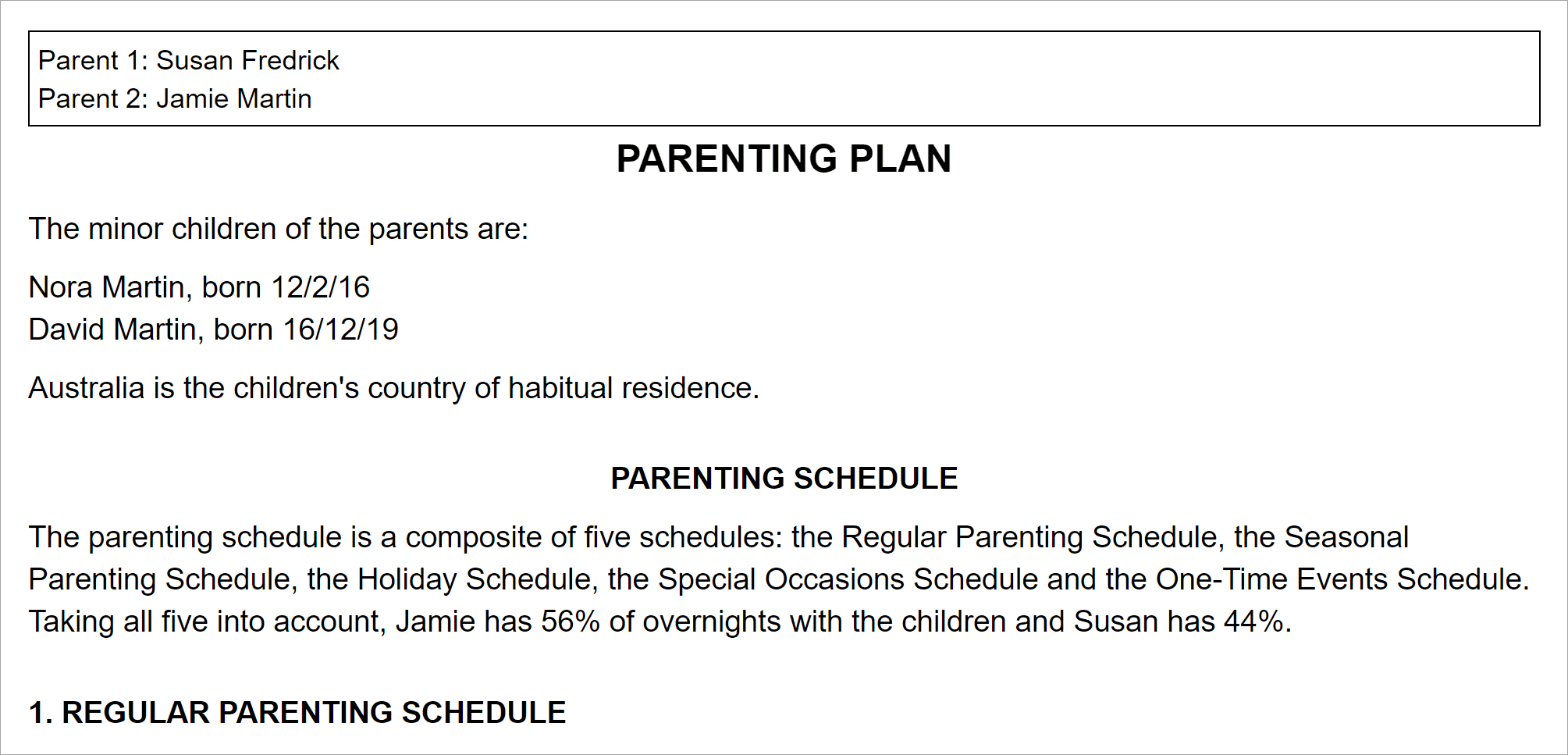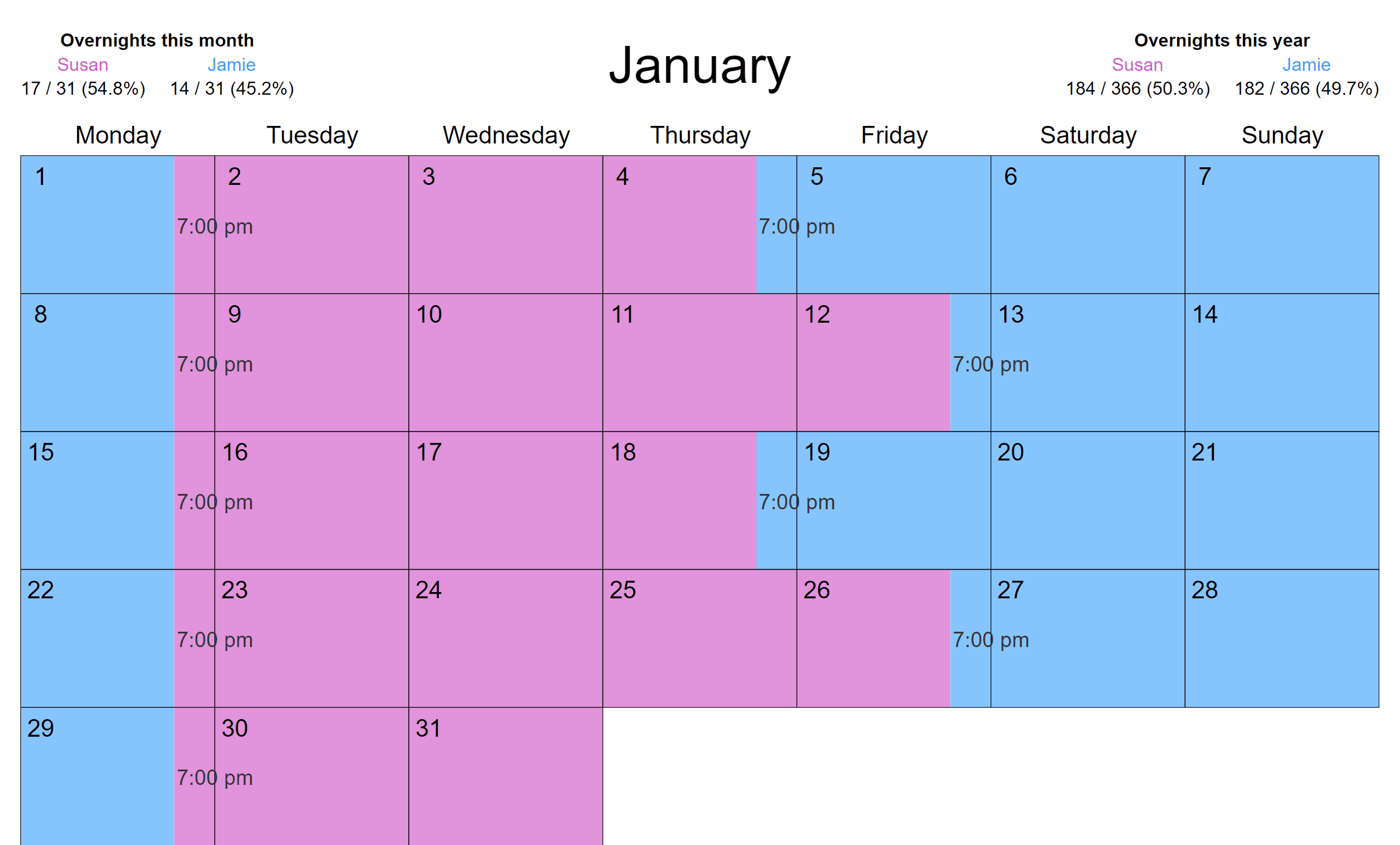Australian Parenting Orders & Family Court Orders
When divorced or separated parents cannot reach an agreement about their child even after trying an alternative dispute resolution method, they can apply for family court orders. Though the steps in the Federal Circuit & Family Court of Australia differ slightly from the steps in the Family Court of Western Australia, both courts issue the same types of orders.
In addition to final versions, you can request interim versions of most of the orders below. The courts decide on these quickly, then eventually replace them with final orders after considering the issues in depth.
Parenting orders
A parenting order is a legally-enforceable ruling about a child's arrangements. It lasts until each child involved turns 18 years of age.
Usually, a parenting order addresses issues such as:
- Whom the child will live with
- Whom the child will spend time with
- Whom the child will communicate with
- Who will make major, long-term decisions affecting the child
It can also address specific behaviours, such as how parents will speak about each other in front of the child.
An order can be detailed or brief, depending on the child's circumstances, the parents' requests and the judicial officer.
In Australia, anyone concerned about the care, welfare or development of a child can apply for a parenting order. Most often, parents or extended family members do so.
Before you apply for one, seek legal advice, even if you plan to represent yourself. Family court is complex and can take years to get through.
A parenting order has several subtypes.
'Live with' order
A 'live with' order is what it sounds like: a mandate about whom the child will live with.
It could be as simple as, 'The child will live with the mother'. But where the child will live with both parents, it typically lays out a parenting schedule to prevent conflict over when the child should change homes.
'Spend time with' order
A 'spend time with' order specifies whom the child must be allowed to spend time with and when.
Usually, it ensures the child has regular time with the parent with whom they don't live, and it includes a parenting schedule. It can also ensure that the child spends time with other people important to their development, such as grandparents.
'Communicate with' order
This order deals with how the child will communicate with specific people — most commonly, with the parent with whom the child does not live.
It details the methods of communication allowed (e.g., phone call, video call, text message) and permissible times.
Parental responsibility order
This order specifies who has parental responsibility — the ability and duty to make major, long-term decisions for a child.
It may give:
- Equal shared parental responsibility — legally obligating parents to consult on decisions about the child and to try to agree
- Sole parental responsibility — giving one parent full decision-making powers for the child and the other parent none (except for minor decisions whilst caring for the child)
Australian law presumes equal shared parental responsibility is in a child's best interest until proven otherwise.
Variations can come into play where they work best for the child. For example, parents could have equal shared responsibility in all areas except education, which one parent would have sole responsibility for.
Related orders
Parenting orders are sometimes accompanied by other orders.
Injunction
An injunction restrains a parent or another person from certain behaviour. For example, an injunction may prohibit a parent from letting a problematic relative around the child.
Domestic violence order
A state-level court can issue a domestic violence order. In an emergency, the police can do the same.
This order restrains someone from committing violence against a family member and may ban them from having contact with whomever is at risk.
Names for this order vary by state, as do the processes for obtaining one.
- ACT – family violence order
- NSW – apprehended domestic violence order
- NT – domestic violence order
- QLD – domestic violence order
- SA – intervention order
- TAS – family violence order
- VIC – intervention order
- WA – violence restraining order
Consent orders
If parents reach an agreement, they have the option to ask a court to make consent orders reflecting it.
Consent orders have the same effect as a judicial officer's decision after a trial. If you break one, you could be issued penalties, up to jail time for repeated offences.
Applying for consent orders often means you avoid appearing in court. If you've already begun court proceedings, you can bring them to a close at any time by applying for and receiving a consent order about the disputed issue.
The first step is to write up a parenting plan that details your agreement with the other parent. Then, take the parts that you want to make legally enforceable, and enter that information into your court's forms. Or just attach your parenting plan to have the entire thing turned into a consent order.
 Try this with Custody X Change.
Try this with Custody X Change.
You'll need different forms to apply for a consent order in Western Australia than to apply for a consent order elsewhere in Australia.
The courts will only approve orders that are realistic and serve the best interest of your child. If your application is for sole parental responsibility, you'll need to say why this is best for your child.
Keep in mind that changing a consent order without the other parent's approval is difficult.
Breaching family court orders
Breaching a court order is a serious offence.
If the other parent is not complying with an order, gather evidence and keep detailed notes about their infractions. (You might use a digital parenting journal.)
Then you can ask the court to enforce the order or impose a penalty.
Initial penalties may include:
- The noncompliant parent completing a post-separation parenting programme
- The noncompliant parent providing makeup parenting time to the other parent
- Having the parenting order changed
If a parent disobeys the order several times, they may face more serious penalties, including:
- Paying expenses resulting from the breach
- Paying fines
- Doing community service
- Serving a jail term of up to a year
Staying in compliance with court orders
Family court orders can be complicated, especially for a parenting schedule. When exactly does the weekend begin? Which day is considered the middle of summer holidays?
Use Custody X Change to transform your orders into a digital custody calendar both parents can edit and print so you'll never have to wonder whether you're staying in compliance.

You can even track how well 'live with' and 'spend time with' orders are being followed with our parenting time tracker and parenting journal.
Custody X Change has all the tools you need to set your parenting arrangements up for success.
